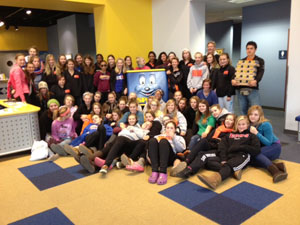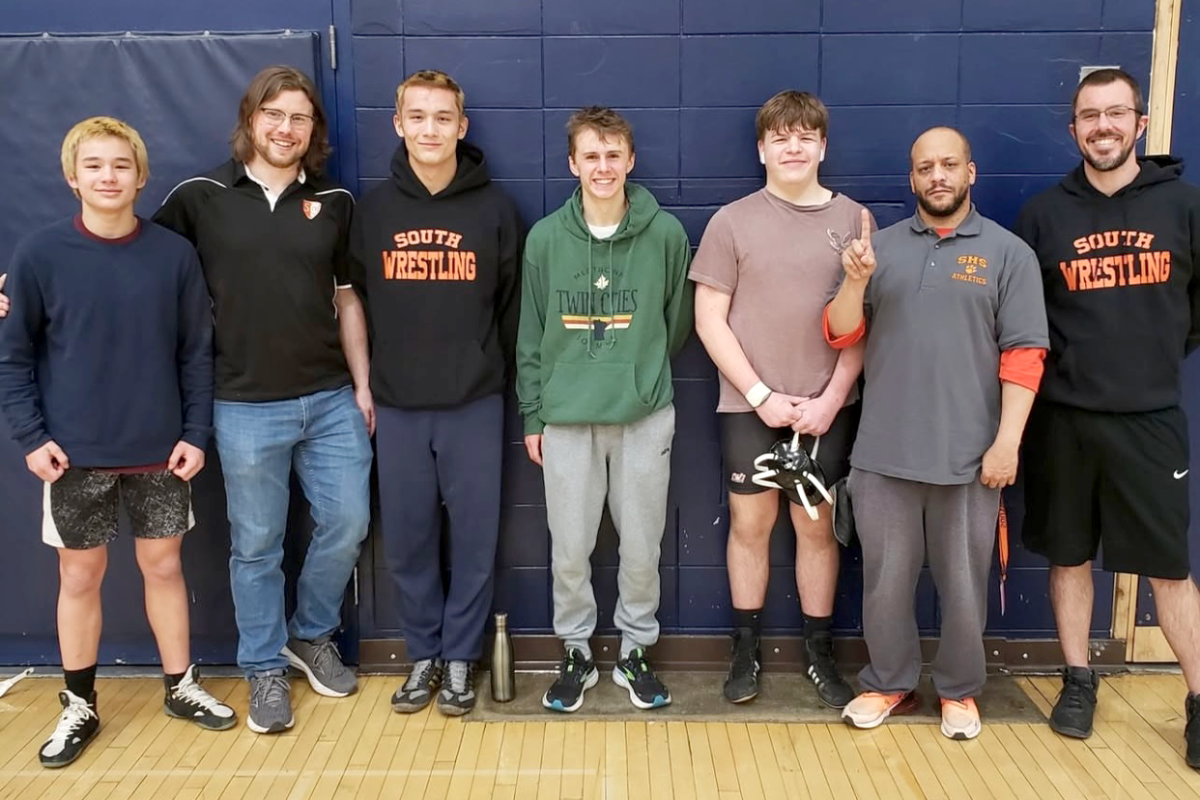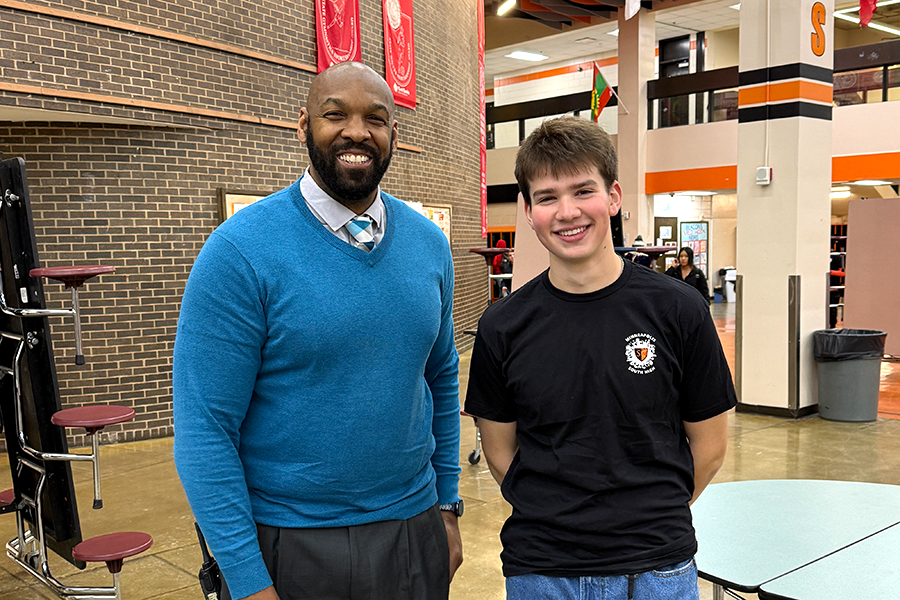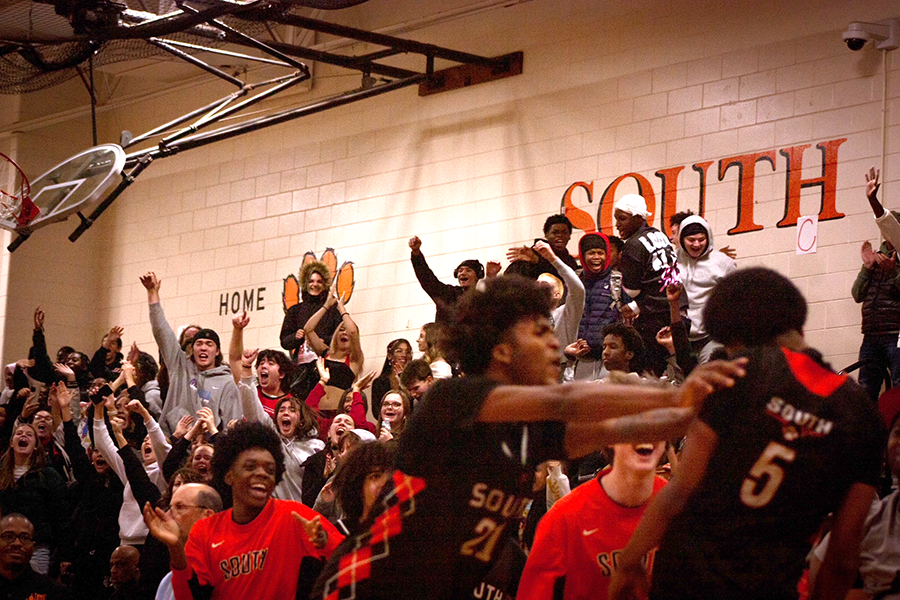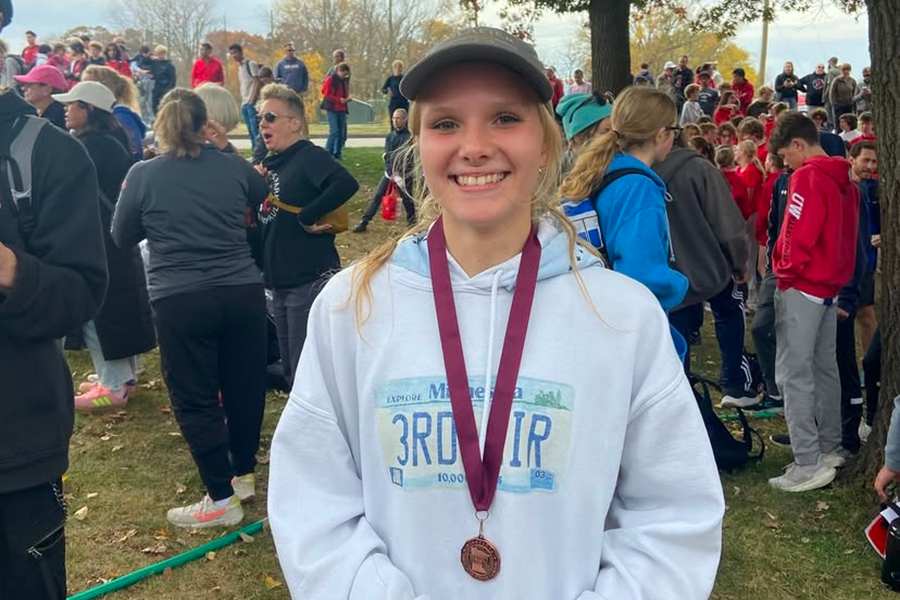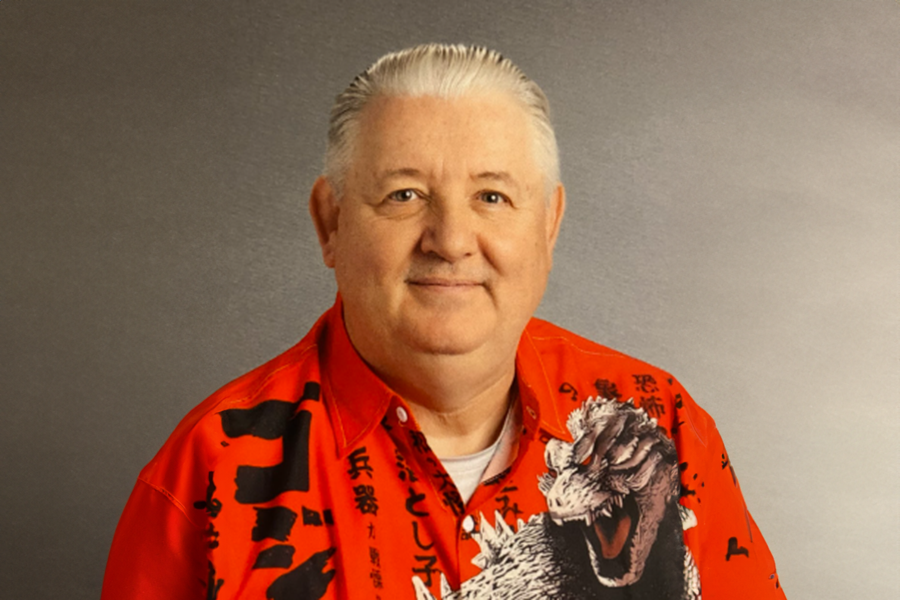It can be hard to be a freshman. You can get lost and overwhelmed with the high demands of high school. It can be lonely to suddenly be a small fish in a very large pond. This is true especially at a big school like South.
Joining sports teams in the fall is a big way freshmen can break into the South community. Captains’ practices are held for most of the summer. For many sports, once the season starts, freshmen, junior varsity, and varsity teams are formed. It can take strong leadership and effort to help the freshmen on a separate team to feel as if they are welcomed into their sport’s community.
When sophomore Clara Wildenauer was a freshman, she played on soccer’s freshman team, known as Orange. “There’s definitely a difference between how you’re looked at for being on JV and how you’re looked at for being on freshman team,” she said. She explained that there was an out-of-town tournament during the season open only to junior varsity and varsity players. “It kind of made me feel a little out of it, there wasn’t the same amount of team bonding.”
“During captains’, it was really easy to interact with older people,” she explained, but as the season continued, separation of the teams “just happens.” Wildenauer indicated the varsity team’s focus on competition as a source of the lower teams’ exclusion. But the soccer community overall “really wasn’t that bad. You’re on a team with people who feel the same way [about being left out].”
This year, due to a lack of players, women’s soccer did not form the Orange team in addition to varsity and JV. “On JV, [there is] not a different community,” Wildenauer said. “Whatever the lowest team is gets the same vibe.”
“It’d be cool if the captains could throughout the season keep in touch with lower teams and make sure it still feels like a community,” Wildenauer said, in order to foster more community for all the athletes on women’s soccer. Junior captain Siri Neseth played on JV her freshman year. She agreed that “being on JV and being able to interact with varsity players was really fun.”
“It’s [still] really fun to interact with the other teams,” said Neseth. However, she explained that it’s hard for the varsity players to interact as much with the rest of women’s soccer because their focus is on competition. “I definitely feel like it [is] a different community,” she explained. “JV is not as intense. [Being on varsity] changes the way you play and the way you practice.”
When teams are focused on competing, it’s can become harder to make social links with the other teams. “You build a different, separate community with your team,” said Neseth.
Unlike soccer, for other fall sports teams, captain involvement makes freshmen feel welcome. Freshman football player Kyle Evans plays on both the C team, usually known as the freshman team, and the varsity squad. Even though the C team practices separately from the JV and varsity teams, Evans described football as “one big community.”
Both Evans and football coach Lenny Sedlock attribute football’s strong community largely to the captains’ efforts. Sedlock praised his captains for “helping our younger players as well during the year.” Evans agreed. “They try to get our team to work together, to try to be leaders… and keep us in check, to try not to give up,” he said. The strong community of football allows freshmen to get to know older teammates at South. It can gives students a good role model for their high school years.
Freshman Sydney Peterson plays on the freshman volleyball team. Peterson finds the volleyball community to be really inclusive. “The upperclassmen are super nice. You hear all these things [about being an underclassman]. They don’t treat you like a lowerclassman though,” said Peterson.
Both Peterson and senior captain Ellen Sachs attributed the program Big Sisters, unique to South volleyball, as the reason for volleyball’s welcoming community. Sophomores, juniors, and seniors are paired up with a freshman “Little Sister” for the season. The sisters bring gifts for each other, go to their games, and make signs for them. “We try to just be as supportive and as happy as possible,” explained Sachs. “My freshman year it was really nice… you don’t know the idea of the fans screaming in your face [while you’re playing]. It’s nice to have that one person with a sign for you.” Big Sisters can help connect volleyball freshmen, like Peterson, to someone who understands their transition into not just being in high school, but competing at a higher level.
A similar program exists on the womens’ swim team, SHAWA (South High Aquatics Washburn Aquatics) known as families. Captain and senior Signe Rudrud explained that each senior girl gets a group comprised of underclassmen and juniors. Like Big Sisters, they bring gifts for their families and get to know them. “We just look out for those girls,” explained Rudrud.
One thing that separates swimming from many other sports is that the team doesn’t cut athletes. SHAWA is not broken down into separated communities like soccer, volleyball, and football. This year is the first in which junior varsity and varsity have practiced separately. But, Rudrud assured, “Everyone’s welcome and we’ll find a spot for you.” Senior Captain Alexis Miller finds the support system on SHAWA unique. “Everybody’s super friendly and accepting, we want everybody on the team,” said Miller.
Families are a big deal on SHAWA, but there are many bonding activities outside of everyday team activities. Rudrud explained that there are pasta parties before every meet. There’s a meet in Austin, Minnesota, and by tradition, this meet is attended by the whole team. At the end of the season, the seniors plan a big night for the whole team full of secret activities known as Senior Surprise. The swimmers on SHAWA are also big on dressing up for meets. Joked Rudrud in her blue jumpsuit for the water dress up theme, “You bond over looking a little ridiculous.”
SHAWA’s leaders work to maintain a welcoming social environment for freshmen. The excitement exhibited by the captains about SHAWA’s social environment spreads to the rest of the athletes. Freshman Maybelle Koland-Anderson described SHAWA as cliquey, but not in a bad way. “[It’s] inviting. Instead of meeting one friend, you meet a whole group of friends.” She explained that “it’s nice to meet people at school. It’s a relief to know everyone especially if you’re a freshman.”
Any freshman will tell you that it can be hard to get used to a big school with a lot of unfamiliar people. When the captains of fall sports focus on forging a fun community, freshmen don’t have to be lost or confused at South. When welcomed into the larger community of their team, they are welcomed into the South High community.
“I think the freshmen are learning what it takes to be good leaders, they’re going to want to follow in their [captains’] footsteps,” said Sedlock. The strong communities forged by the Captains of South sports can continue to add to the welcoming community in sports that appeals to freshmen athletes.

